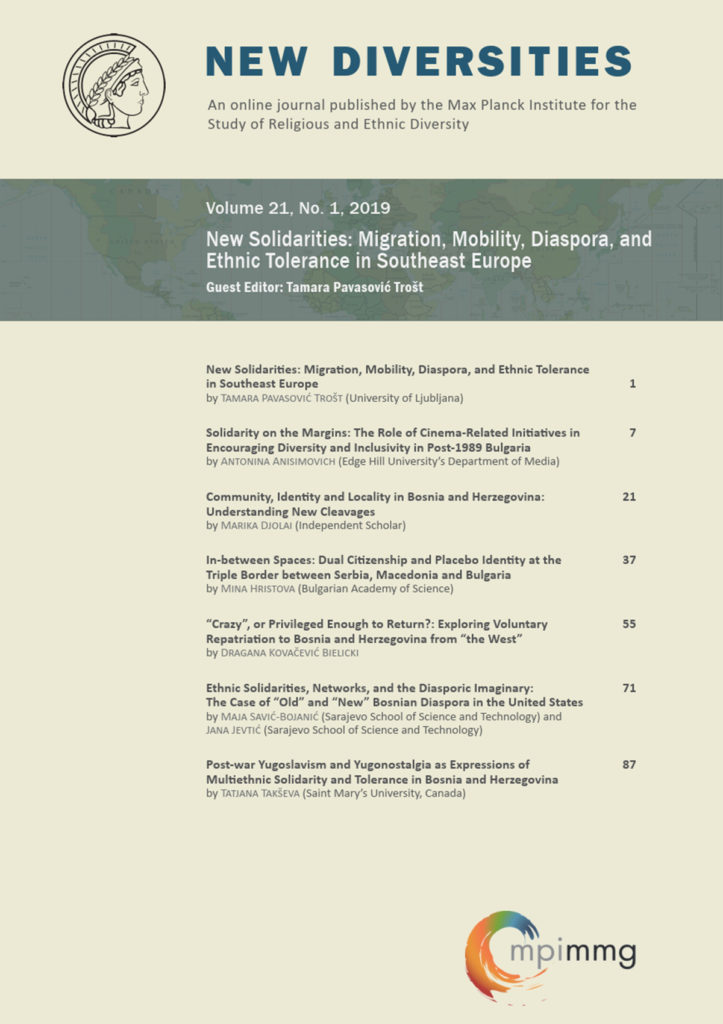Post-war Yugoslavism and Yugonostalgia as Expressions of Multiethnic Solidarity and Tolerance in Bosnia and Herzegovina
by Tatjana Takševa (Saint Mary’s University, Canada)
To cite this article: Takševa, T. (2019). Post-war Yugoslavism and Yugonostalgia as Expressions of Multiethnic Solidarity and Tolerance in Bosnia and Herzegovina. New Diversities, 21(1), 87–101. https://doi.org/10.58002/5tca-mk09
Grounded in empirical research conducted in Bosnia and Herzegovina based on autoethnographic observations, interviews with women survivors of war rape, children who were born of war rape, and NGO leaders, this discussion extends current work on Yugoslavism (Jugoslovenstvo) and Yugonostalgia by positioning the two interrelated discourses not only as ideologies of resistance to an unsatisfying political and economic present, but also as emerging ideologies of a shared cultural identity rooted specifically in the civic values of multiethnic co-existence and solidarity. I argue that in today’s Bosnia and Herzegovina post-conflict Yugoslavism and Yugonostalgia constitute an active expression of ethnic tolerance, peaceful multiethnic co-existence and mutual respect. As such, the direct or indirect transmission and articulation of these ideologies among and within different population groups constitute an exceptionally important form of multiethnic postwar solidarity that is of great significance to ongoing peace and reconciliation processes and the continuing development of a meaningful post-war dialogue and a new culture of collective identity.
Keywords: Bosnia and Herzegovina, peace, conflict, Yugoslavia, Yugoslavism, Yugonostalgia, diversity, ethnicity, collective identity
New Diversities • Volume 21, No. 1, 2019
New Solidarities: Migration, Mobility, Diaspora, and Ethnic Tolerance in Southeast Europe
Guest Editor: Tamara Pavasović Trošt (University of Ljubljana)
- ISSN-Print 2199-8108
- ISSN-Internet 2199-8116
